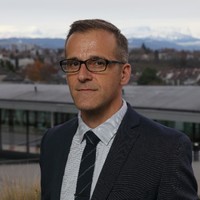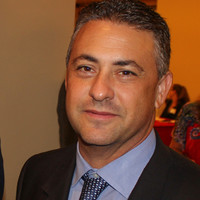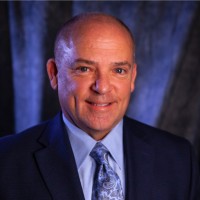Sinclair’s WPEC in West Palm Beach, Fla., started recording the testimonies as part of a company-wide project. Brent Struense, WPEC’s marketing and creative services director, says, “We cannot imagine what these people endured and survived.”
Sinclair and USC Shoah Foundation – The Institute for Visual History and Education have partnered to record interviews with survivors and witnesses to the Holocaust and other genocides.
Sinclair will provide its TV stations production facilities to film testimonies across the U.S.
USC Shoah Foundation first began collecting testimonies almost 30 years ago. More than 52,000 Holocaust survivor and witness testimonies are now saved and shared through the institute’s Visual History Archive. The Last Chance Testimony Collection Initiative was launched in 2019 to encourage Holocaust survivors, most of whom are now in their 80s and 90s, to give testimony while time and memory permit.

“With antisemitism once again on the rise around the world, it is our duty to collect and listen to the testimonies of those who experienced the worst consequences of unchecked bigotry against Jews,” says Dr. Robert J. Williams, USC Shoah Foundation’s executive director.

Jon Brady, news director of WPEC, Sinclair’s CBS affiliate in West Palm Beach, Fla., says there are anti-Semitic acts of hate in the West Palm Beach community constantly.
“We keep hearing these stories about leaflets thrown on driveways in Jewish neighborhoods,” Brady says. “Projections of swastikas on skyscrapers and sports stadiums. As a voice for the community, it just seemed to us that something had to be done.”
WPEC started recording the testimonies, with other Sinclair stations being used where there is a need in the market.

Mike Pumo, WPEC’s GM, says the station has recorded 14 testimonials so far in a secondary studio at the station.
“The intent is to educate the community as to why you have to remember these genocides and we are fortunate enough to have Holocaust survivors that we can draw from,” Pumo says.
He says given the sensitive nature of the interviews, the station’s executive team had long conversations about where the interviews would air and how it would be promoted.
“But at the end of the day, it was important that this content play in the morning, in the early evening and as well as 11 o’clock at night,” Pumo says. “We have received more positive comments and no negative comments.”

Those involved in the recording and editing of the testimonials say they are very powerful, but they take a toll emotionally.
“I have listened to 14 testimonies, some of them go an hour, some of them go three hours, some you get a little emotional because you feel their emotion,” says Carl Pugliese, WPEC’s news operations manager. “They are opening their hearts to you. There are times I’ve had to walk out and just clear my head.”

Brent Struense, WPEC’s marketing and creative services director, says the survivors describe their ordeals in detail, and it is harsh.
“We cannot imagine what these people endured and survived,” Struense says.
He says one survivor got emotional and had to pause during the interview.
“I just let that pause breathe and she pointed her fingers up and said, ‘but I am still here.’ And that’s the story,” Struense says.
After the survivors tell their story, the entire raw file is sent to the USC Shoah Foundation.
WPEC produced and aired an hour-long special, Hate Rising: Antisemitism in America, which will be shared with Sinclair stations across the U.S. for airing beginning later this month.
“The special is riveting, it’s emotional, and it is very, very well done,” Pumo says.





Comments (0)
Reader Interactions